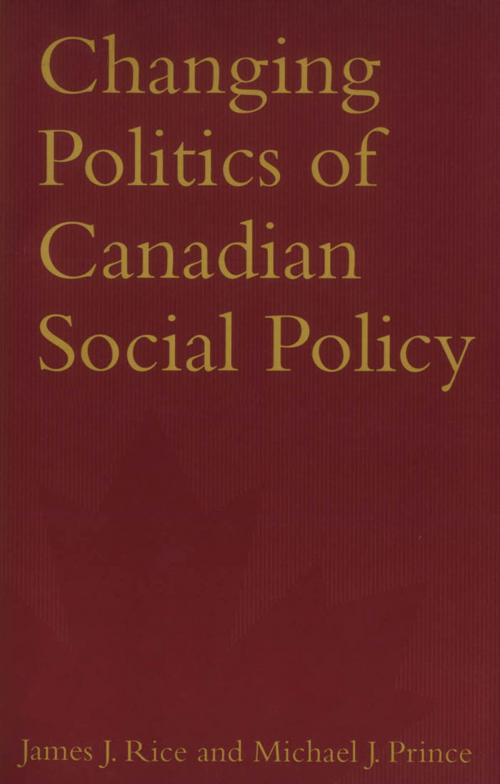Changing Politics of Canadian Social Policy
Nonfiction, Social & Cultural Studies, Political Science, Politics, Social Services & Welfare, Government, Social Policy, History, Canada| Author: | Michael J. Prince, James J. Rice | ISBN: | 9781442690806 |
| Publisher: | University of Toronto Press, Scholarly Publishing Division | Publication: | March 18, 2000 |
| Imprint: | Language: | English |
| Author: | Michael J. Prince, James J. Rice |
| ISBN: | 9781442690806 |
| Publisher: | University of Toronto Press, Scholarly Publishing Division |
| Publication: | March 18, 2000 |
| Imprint: | |
| Language: | English |
No one is content with the state of health and social programs in Canada today. The Right thinks that there is too much government involvement, and the Left thinks there is not enough. In Changing Politics of Canadian Social Policy James Rice and Michael Prince track the history of the welfare state from its establishment in the 1940s, through its development in the mid 1970s, to the period of deficit crisis and restraint that followed in the late 1970s and 1980s.
Taking a historical perspective, the authors grapple with the politics of social policy in the 1990s. Globalization and the concomitant corporate mobility affect government's ability to regulate the distribution of wealth, while the increasing diversity of the population puts increasingly complex demands on an already overstressed system.
Yet in the face of these constraints, the system still endures and is far from irrelevant. Some social programs have been dismantled, but the government has organized and maintained others. Greater democratization of welfare programs and social policy agencies could make the system thrive again. Changing Politics provides the much-needed groundwork for students and policy makers while also proposing real solutions for the future.
No one is content with the state of health and social programs in Canada today. The Right thinks that there is too much government involvement, and the Left thinks there is not enough. In Changing Politics of Canadian Social Policy James Rice and Michael Prince track the history of the welfare state from its establishment in the 1940s, through its development in the mid 1970s, to the period of deficit crisis and restraint that followed in the late 1970s and 1980s.
Taking a historical perspective, the authors grapple with the politics of social policy in the 1990s. Globalization and the concomitant corporate mobility affect government's ability to regulate the distribution of wealth, while the increasing diversity of the population puts increasingly complex demands on an already overstressed system.
Yet in the face of these constraints, the system still endures and is far from irrelevant. Some social programs have been dismantled, but the government has organized and maintained others. Greater democratization of welfare programs and social policy agencies could make the system thrive again. Changing Politics provides the much-needed groundwork for students and policy makers while also proposing real solutions for the future.















